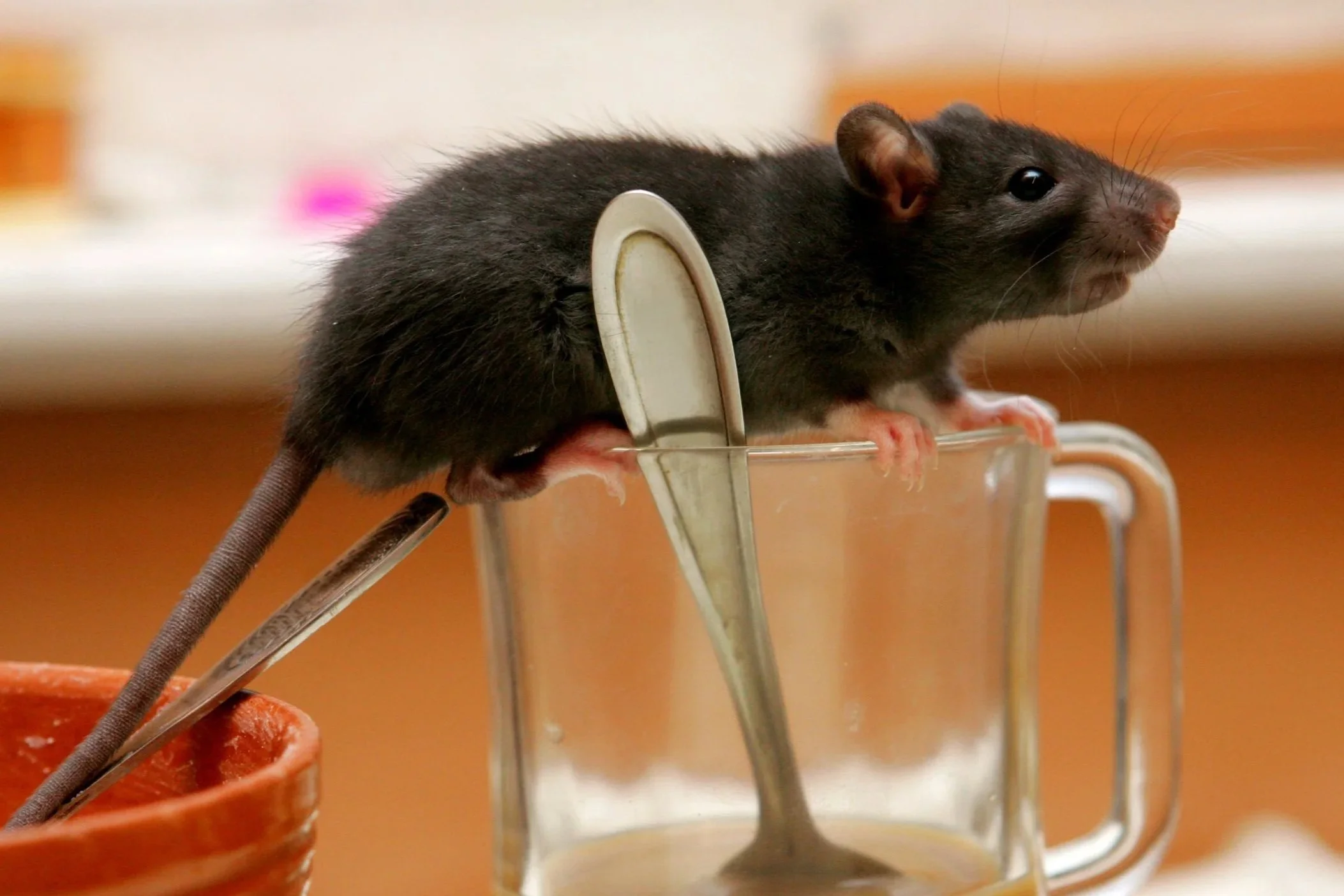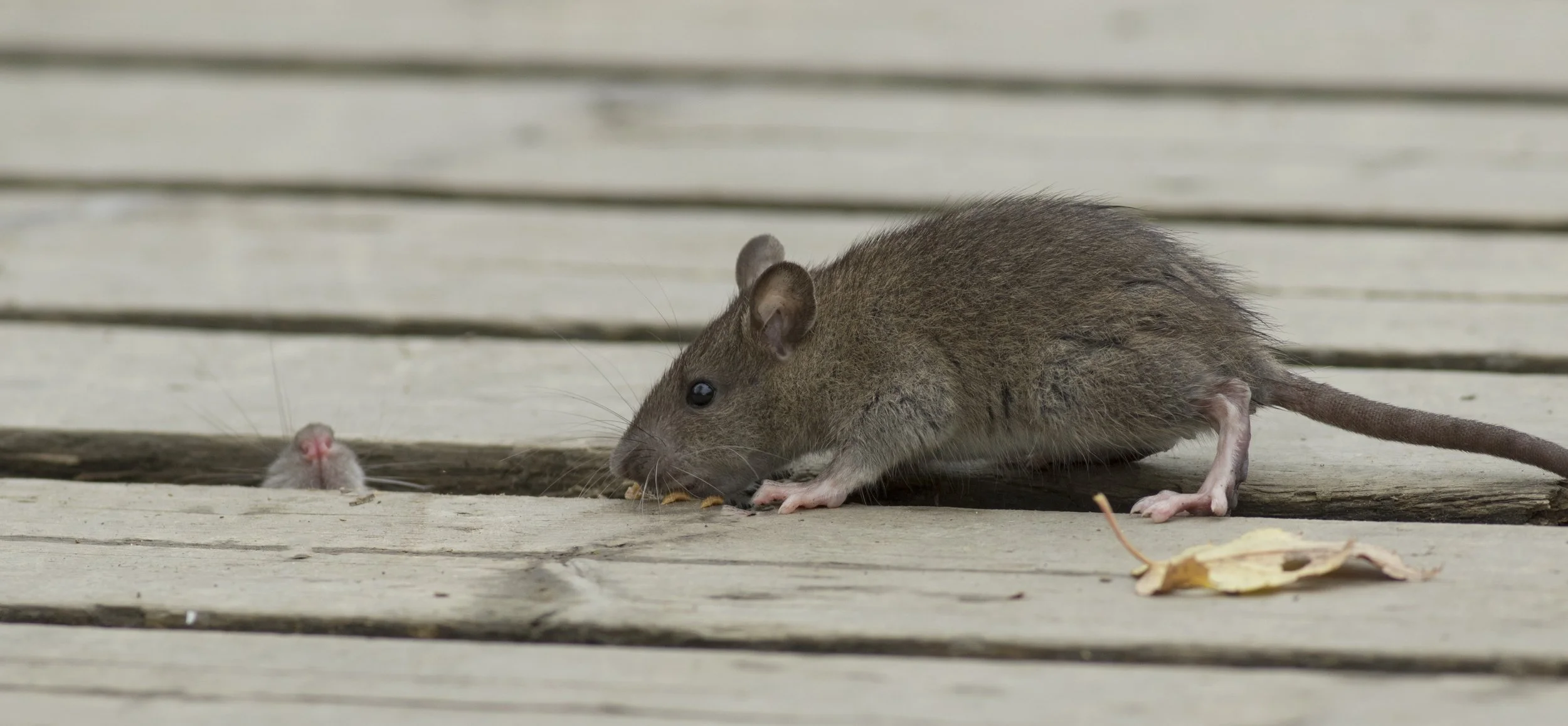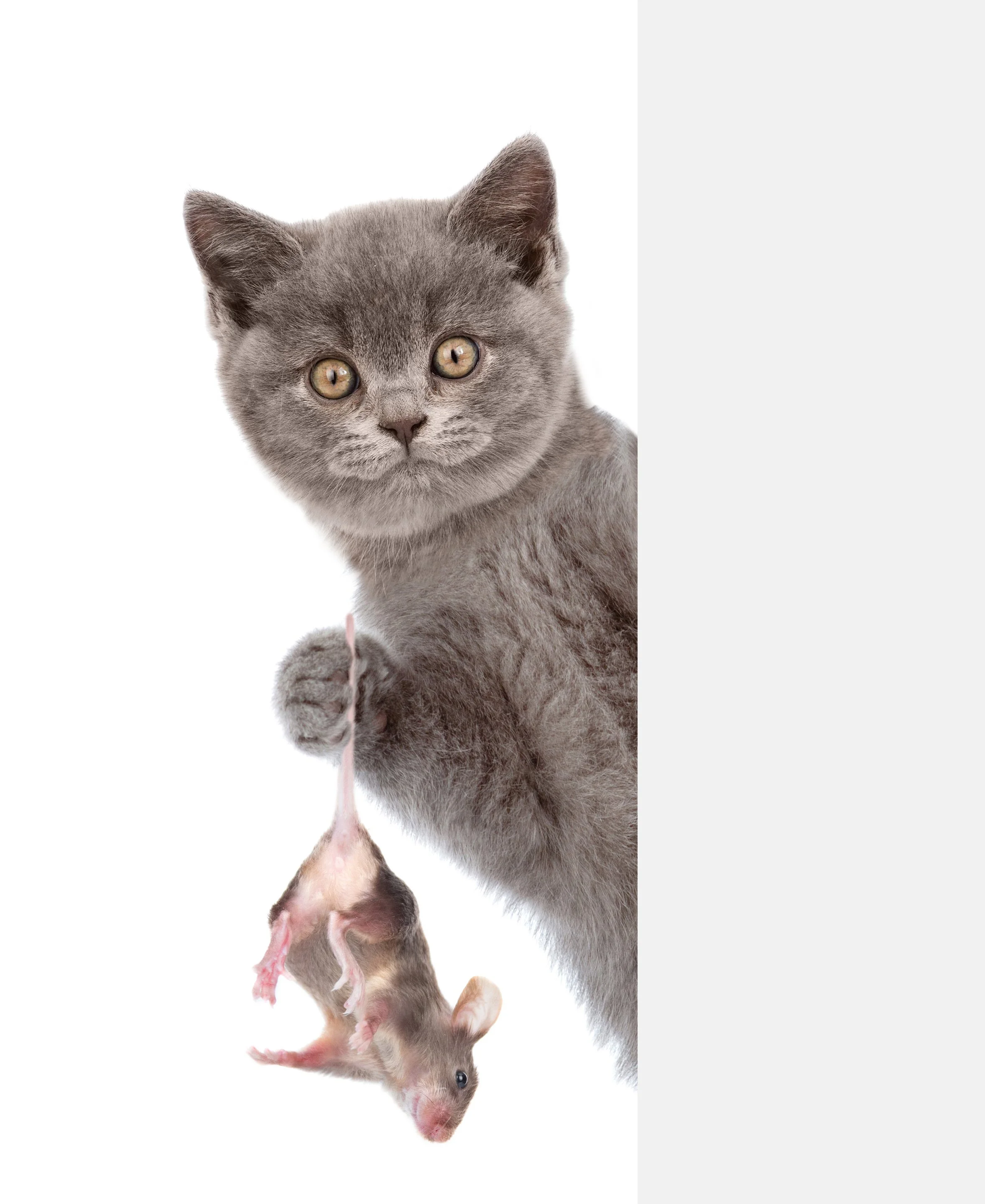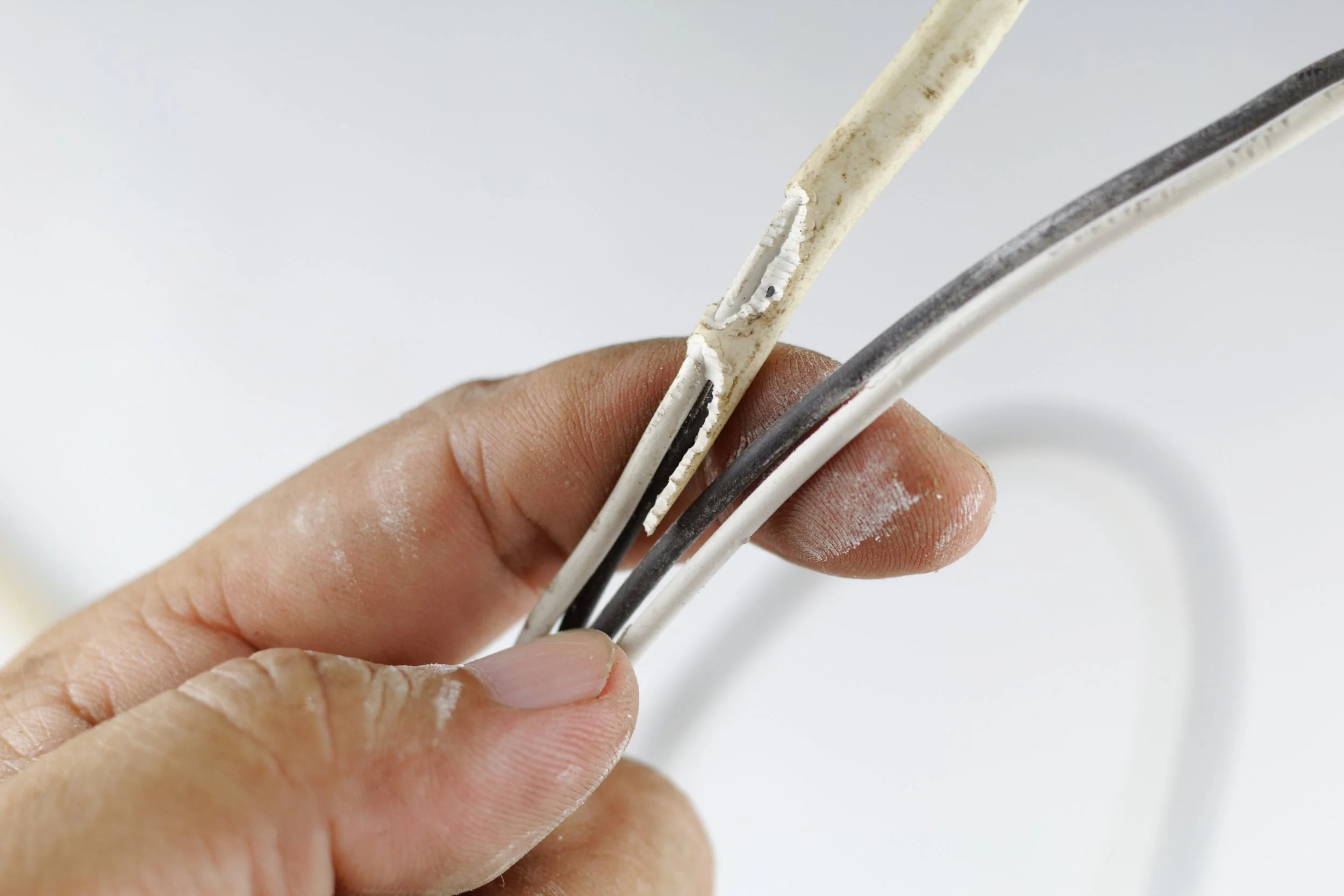
Rodents in North Texas
Rats and mice aren’t just unwelcome houseguests — they’re dangerous. These pests contaminate food, spread diseases, and chew through wiring, insulation, and even structural materials. Once inside, rodents multiply quickly and can cause extensive damage in a short time.
Pure Grit Pest Control provides professional rodent control and exclusion services to remove current infestations and prevent future ones.
Common types of rodents in North Texas
-
Appearance: Small (2–4 inches), gray or brown with large ears and long tails.
Risks: Contaminate food with droppings and urine; reproduce rapidly.
Where Found: Kitchens, pantries, garages, and attics.
-
Appearance: Large, stocky rats (7–9 inches), brown with blunt snouts and small ears.
Risks: Gnaw on wiring, wood, and pipes; spread diseases like leptospirosis and salmonella.
Where Found: Burrow in basements, crawlspaces, and foundations.
-
Appearance: Sleeker than Norway rats (6–8 inches), black or dark brown with long tails.
Risks: Nest in attics and upper levels; spread diseases and contaminate food storage.
Where Found: Rooflines, attics, trees, and upper portions of homes.
Why rodents are a problem
Disease Transmission: Rats and mice spread salmonella, hantavirus, leptospirosis, and more.
Property Damage: Constant gnawing can ruin wiring, drywall, insulation, and even structural beams.
Fire Risk: Chewed electrical wires can cause house fires.
Rapid Reproduction: A single pair of mice can produce dozens of offspring in just months.
Signs of a rodent infestation
Droppings near food, under sinks, or in cabinets.
Gnaw marks on wires, baseboards, or food packaging.
Scratching or scurrying sounds in walls or ceilings at night.
Nests made of shredded paper, fabric, or insulation.
Grease marks along walls or baseboards where rodents travel.
Why rodents are so common in north texas
As North Texas grows, rodents thrive in urban, suburban, and rural areas. Warm weather and abundant food sources make them active year-round. In colder months, rats and mice often move indoors seeking shelter.
Pure Grit Pest Control’s Approach
Our rodent services combine elimination and prevention to give you long-term protection:
Inspect – Identify rodent species, entry points, and activity areas.
Remove – Use safe, effective trapping and baiting methods to quickly reduce populations.
Exclude – Seal entry points around foundations, attics, and rooflines to keep rodents out for good.
Protect – Provide ongoing monitoring and preventative treatments as part of our general pest services.
Our technicians are trained to not only remove rodents but also fix the conditions that allowed them inside, protecting your home and family year-round.
Prevention Tips
If you’re hearing scratching in the walls or finding droppings in the kitchen, don’t wait — rodents won’t leave on their own. Whether you’re dealing with mice in your pantry or rats in your attic, Pure Grit Pest Control has you covered.
👉 Call today for expert rodent control in North Texas and protect your home from damage and disease.
Seal cracks and holes around doors, windows, and foundations.
Store food in airtight containers.
Keep trash cans sealed tightly.
Trim trees and shrubs away from rooflines.
Declutter garages, attics, and storage areas where rodents hide.
FAQs
〰️
FAQs 〰️
-
Rats and mice can squeeze through holes as small as a dime. They often enter through gaps in foundations, rooflines, or around utility lines.
-
Traps may catch a few rodents, but they won’t solve the root problem. Professional treatments and exclusion are needed for lasting control.
-
No. Once inside, rodents will nest, reproduce, and stay as long as food and shelter are available. Professional intervention is necessary.






